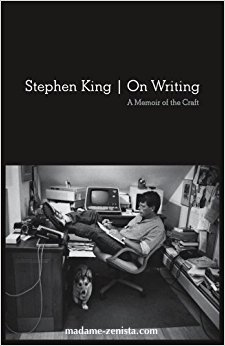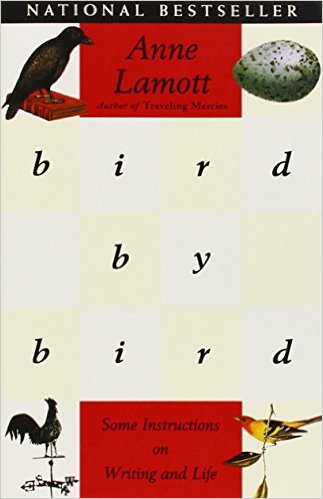 Lets first get this out of the way: I am not a Stephen King fan, nor have I ever read any of his other works, only because I was never into the genre he mostly writes. However, whatever connection I do have with him is through one of his novellas that was adapted into one of the finest movies ever made: The Shawshank Redemption (I resisted putting a couple hearts here). This is my first book by him, and the second on writing, after Bird by Bird. On Writing: A Memoir of the Craft gives a zoomed in view of a successful writer’s entire process. If I was so amazed to read what all actually goes into writing a fiction novel (doubting if I could ever do all that), I was equally inspired to try it out, and excited to see the “magic” happen. In this book, King doesn’t give a success formula or a to-do list, but instead, discusses in detail some very fundamental aspects of writing, some of which are summarized below.
Lets first get this out of the way: I am not a Stephen King fan, nor have I ever read any of his other works, only because I was never into the genre he mostly writes. However, whatever connection I do have with him is through one of his novellas that was adapted into one of the finest movies ever made: The Shawshank Redemption (I resisted putting a couple hearts here). This is my first book by him, and the second on writing, after Bird by Bird. On Writing: A Memoir of the Craft gives a zoomed in view of a successful writer’s entire process. If I was so amazed to read what all actually goes into writing a fiction novel (doubting if I could ever do all that), I was equally inspired to try it out, and excited to see the “magic” happen. In this book, King doesn’t give a success formula or a to-do list, but instead, discusses in detail some very fundamental aspects of writing, some of which are summarized below.
LIFE
The first few pages are about several stories about King’s early life. He and his older brother were raised by a single mother with limited means. Later, even as a father of two toddlers doing two jobs, King struggled to make ends meet, up until the commercial success of Carrie. While he was quite candid about his alcohol and drug addiction, his recovery and how he bounced back is very inspiring, destroying in the process any myths that stimulants are necessary to aid writers or artists in their art. Halfway through the writing of this book, he met with an almost fatal accident during one of his daily walks. Amidst series of operations and painful physical therapy, he resumed work on this book.
STORY
King believes that story is the boss in fiction writing and it is the most important thing readers will want. He says good ideas come sailing at you right out of the empty sky and that the writers job is to recognize them when they show up. Don’t know why, but I feel I am somehow violating trust by putting this very sacred and profound sentence out there, but I will: Stories are relics, part of an undiscovered pre-existing world. The writers job is to use the tools in his or her toolbox to get as much of each one out of the ground intact as possible. I think it is much like remembering a dream: you want to try hard recalling it, yet not inadvertently add your own details in the process, to get the dream as intact as possible.
READING
Read. Read. Read. Reading creates an ease and intimacy with the process of writing. King reads ‘anything and everything he can lay his hands on’ and for those who want to know his recommendations, there is a long list of books at the end.
WRITING
- Writers ‘toolbox’ should be well equipped with a strong vocabulary and solid grammar. Not surprisingly, he praises the classic Elements of Style by William Strunk Jr. and E. B. White.
- He detests unnecessary use of adverbs and of passive voice (attributes it to a lack of confidence and/or affectation of authority), advises writers the same.
- A serious writer would write between 4-6 hours everyday, without any distractions whatsoever (with doors closed and curtains drawn); this is the time to dive deep within.
- It is important to write about what you really know well. Write what you like and then imbue it with live and make it unique by blending in your own personal knowledge of life, friendship, relationships, sex and work.
- Write what rings true to you.
- His little formula for editing: First completed draft = Second draft – 10%. There is a sample passage showing his first draft and the edited second, with notes, which I thought is very useful.
The last part is about actual publishing, finding an agent and such. I think a lot has changed since 1999 making this information a bit outdated.
King makes a promise to his readers that this book is going to be to the point, without “any BS”, and he keeps it. There is lots of good advice and memorable sentences worth framing. Some of the paragraphs are so beautifully written that I typed the entire passages in my phone Notes for the fear of losing the beauty or wisdom in them to time or memory. When his writing is not clever or stylish, it is endearing. For instance, he gives you the reader a Permission Slip: If you feel you need permission to do all the reading and writing your heart desires, consider it hereby granted by yours truly.
On Writing is a masterclass for aspiring writers or bloggers that should not be missed. 4.5 stars on my Goodreads.
Get it on: Amazon iBooks BN
Some of my frames are here:








